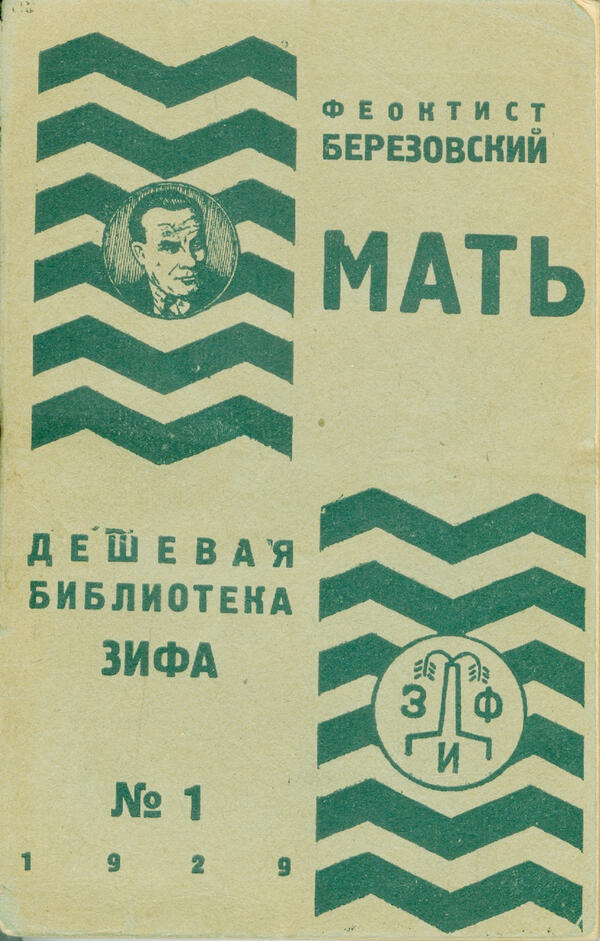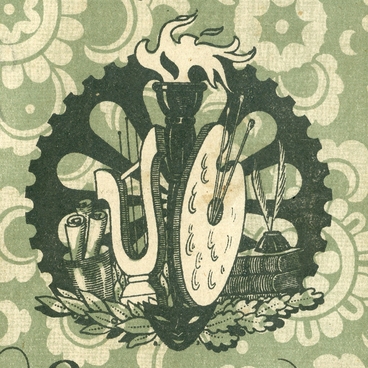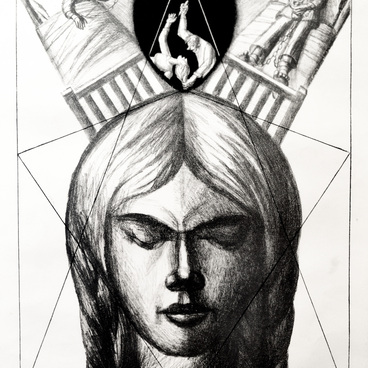Feoktist Berezovsky (1877–1952) is considered one of the first Siberian writers to focus in his works on the life of a regular working man.
FeoktIst Berezovsky was born in Omsk. Having lost his parents at the early age, he was raised in his grandfather’s family. Berezovsky began working at a match factory at the age of six. Later, he worked as a hired farmworker, typesetter, singer in a church choir, and Siberian Railway telegrapher. Despite his craving for knowledge, he did not have much opportunities to study. Having studied at an elementary school for four years, he had to leave to complete telegraph courses. His first short story “A Sketch from a Workaday Life” was issued in the “Stepnoy Kray” (Steppe Region) newspaper in 1900. Apart from being a professional writer, he was also a professional revolutionist. He would say, “I consider myself a regular soldier of the Revolution. My literary work is one of the revolutionist functions”.
He was arrested and exiled numerous times for his revolutionary activities. In 1905, he was the chairman of the strike committee in Irkutsk. He was arrested and sentenced to death but, eventually, imprisoned and later expelled from Irkutsk. After that, he went into hiding and settled in Omsk. This period of his life was depicted in his sketch series The Taiga Pioneers. Later, Berezovsky took an active part in the establishment of the Soviet regime in Siberia and took various administrative positions in Omsk, NovosibIrsk, and Krasnoyarsk. Since 1924, Berezovsky lived in Moscow yet keeping in touch with Siberian writers until his death. While living in Moscow, he was engaged in literary activities only. In 1927, he participated in the creation of the novel “Big Fires” published in the Ogonyok (Little Fire) magazine. In 1923, his landmark novella “Mother” was issued in the Moscow literary and artistic anthology “Milestones of October.” The novella earned him fame.
He was arrested and exiled numerous times for his revolutionary activities. In 1905, he was the chairman of the strike committee in Irkutsk. He was arrested and sentenced to death but, eventually, imprisoned and later expelled from Irkutsk. After that, he went into hiding and settled in Omsk. This period of his life was depicted in his sketch series The Taiga Pioneers. Later, Berezovsky took an active part in the establishment of the Soviet regime in Siberia and took various administrative positions in Omsk, NovosibIrsk, and Krasnoyarsk. Since 1924, Berezovsky lived in Moscow yet keeping in touch with Siberian writers until his death. While living in Moscow, he was engaged in literary activities only. In 1927, he participated in the creation of the novel “Big Fires” published in the Ogonyok (Little Fire) magazine. In 1923, his landmark novella “Mother” was issued in the Moscow literary and artistic anthology “Milestones of October.” The novella earned him fame.
It was one of the earliest Soviet literary works dedicated to the Civil War. It also has a similar plot to Maxim Gorky’s novel of the same name. ‘Mother’ was a huge success. It was translated into English, German, Bulgarian, and Czech languages. After the fascist regime was overthrown, the novella was also published in Italy.



